TABLE OF CONTENTS
Can you use AMD GPUs with Intel CPUs? Is there a reason that you shouldn’t, or even should?
Let’s dive into these questions together, and by the end of the article, you should have a solid idea of whether or not this is a solid combination.
Are AMD GPUs Compatible With Intel CPUs?
First and foremost, let’s establish the basics: you absolutely can use an AMD GPU with an Intel CPU.
The two companies may be competing in both the CPU and GPU hardware spaces, but that doesn’t mean they won’t work together inside of your PC build.
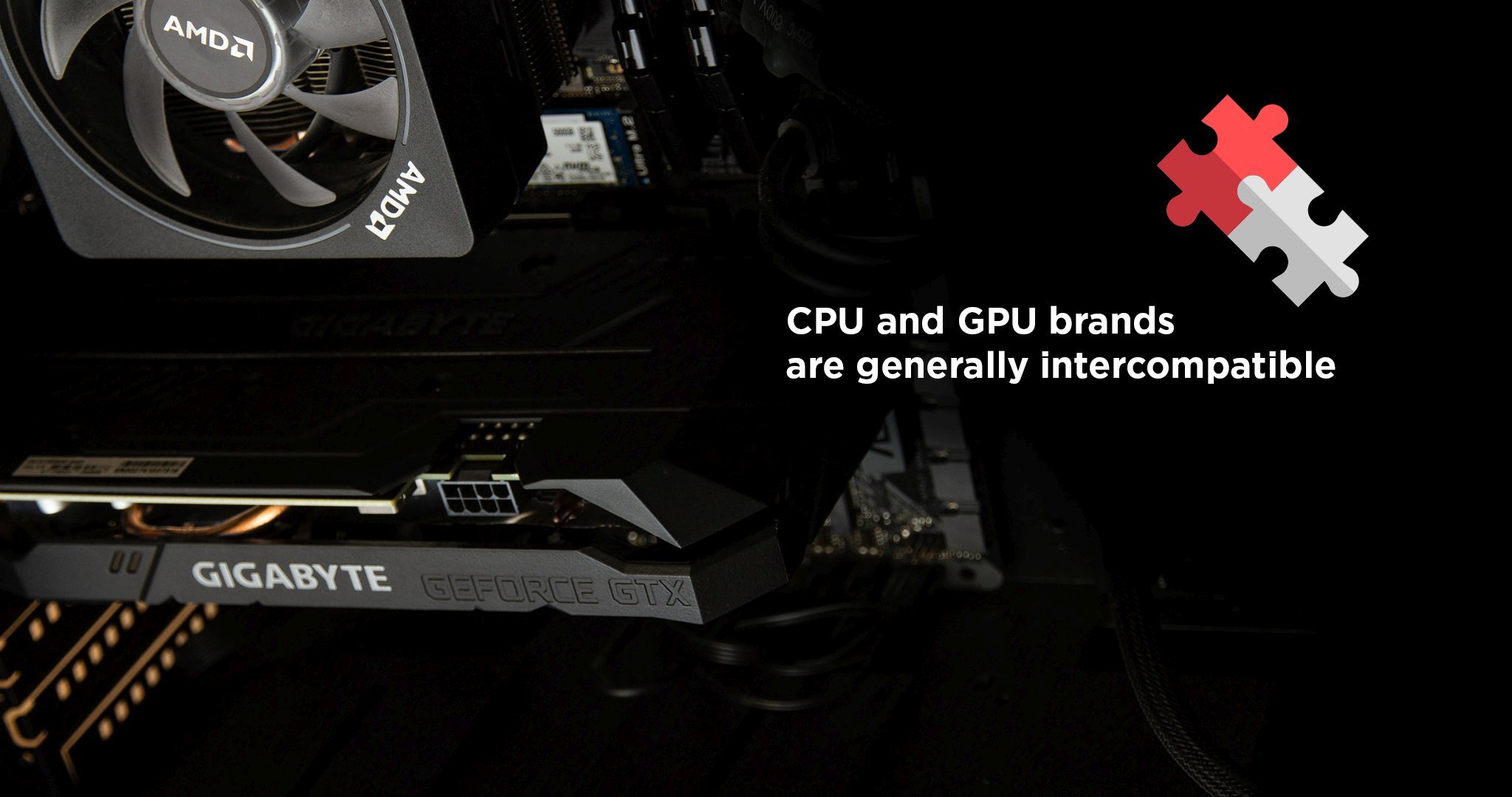
However, you may be left with lingering concerns past general compatibility.
For example, are there any benefits you could be missing out on by not pairing AMD GPUs with AMD CPUs?
Are There Benefits To Using AMD GPUs With AMD CPUs, Instead?
AMD Smart Access Memory (SAM) and Resizable BAR Explained
One notable feature of AMD GPUs paired with AMD CPUs is a feature called AMD Smart Access Memory.
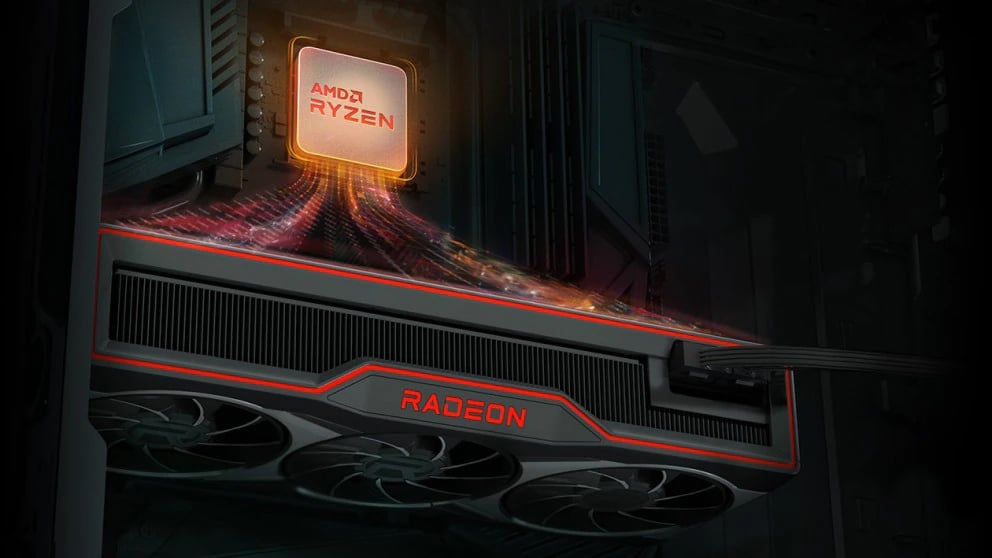
Source: AMD
Basically, AMD Smart Access Memory works by giving the CPU more access to the GPU’s VRAM, enabling some small performance gains (~4% or less in most cases, 10% or more in rare cases) across games, which is nice but hardly mandatory for a good experience.
What people might not know is that this is based on a feature called Resizable BAR (Base Address Register), which isn’t actually AMD specific.
In fact, many Intel CPUs support the use of Resizable BAR alongside AMD GPUs, as covered and benchmarked by Legit Reviews here.
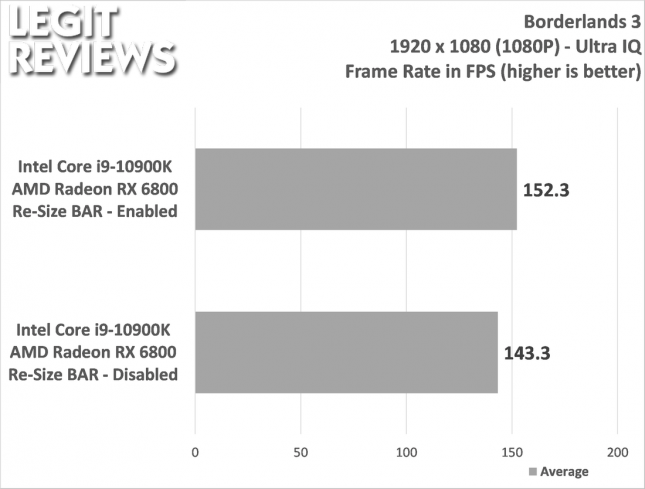
An AMD GPU being run with Resizable BAR Instead of SAM by Legit Reviews. Still works!
So, the big AMD/AMD feature actually works perfectly fine with an AMD/Intel setup. Are there any other exclusive AMD CPU/GPU combination features to be concerned about, then?
Not really.
The closest thing there used to be was something called AMD Dual Graphics, which basically enabled AMD APUs (CPUs with integrated graphics chips) to run in dual-GPU mode with certain discrete AMD GPUs.
This feature was phased out pretty quickly, though, and no longer exists for current AMD CPUs and GPUs.
Why AMD GPUs With Intel CPUs Can Be Ideal For Some Users
Past concerns of AMD Smart Access Memory, AMD GPUs with Intel CPUs can be a compelling combination for one kind of user in particular: gamers.
Modern Intel CPUs are able to keep a consistent, if sometimes, small lead in gaming performance when compared to AMD CPUs. Especially for high refresh rate gaming, Intel CPUs can feel like the best choice for many users, even if they use an AMD GPU.
On a similar note, AMD GPUs tend to have much better performance-per-dollar in gaming when compared to rival Nvidia GPUs.
The extra money isn’t necessarily wasted on Nvidia, especially if you or the games you play can make good use of Nvidia’s extra hardware features, but if all you care about is consistent frames per second, AMD cards can be the better companion.
Is There Any Reason To Consider an Nvidia GPU With an Intel CPU Instead?
However, there is an elephant in the room here that should be addressed, especially if you’re looking to use GPU acceleration for professional and productivity-oriented workloads.
When it comes to non-gaming uses, Nvidia GPUs actually enjoy a considerable lead over AMD cards in many high-end pro workloads, as shown in benchmarks by Puget Systems.
And in both gaming and productivity workloads, current-generation AMD GPUs simply aren’t competitive with Nvidia GPUs when it comes to ray tracing workloads.
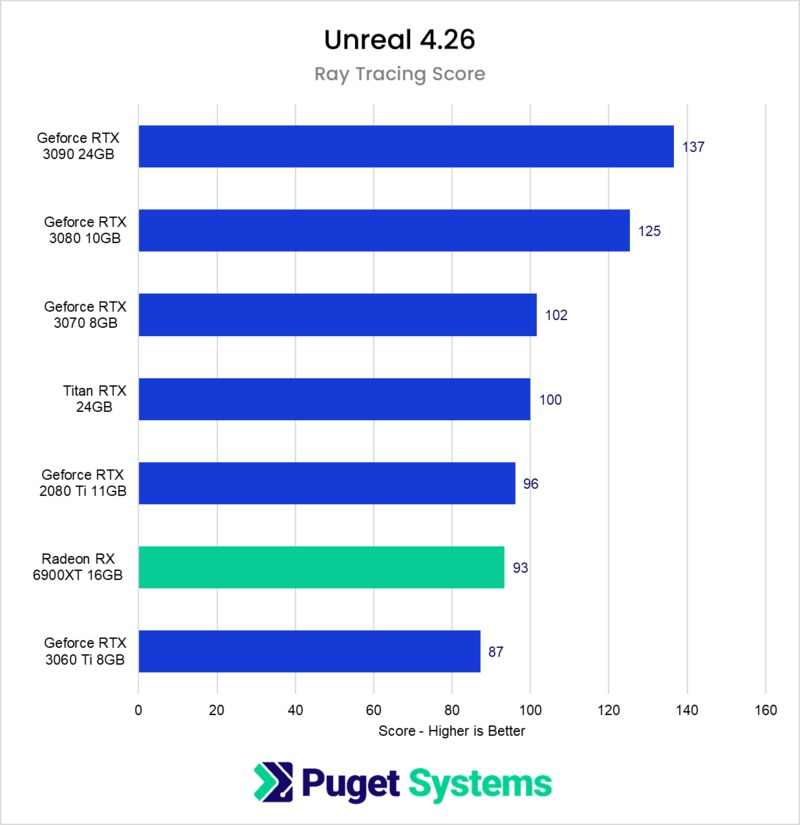
Source: PugetSystems
If your gaming or professional 3D rendering involves lots of ray-tracing, an AMD GPU may not be the correct choice for your build.
Especially if your 3D GPU Render Engine uses CUDA / OptiX for rendering – which is supported on Nvidia GPUs only!
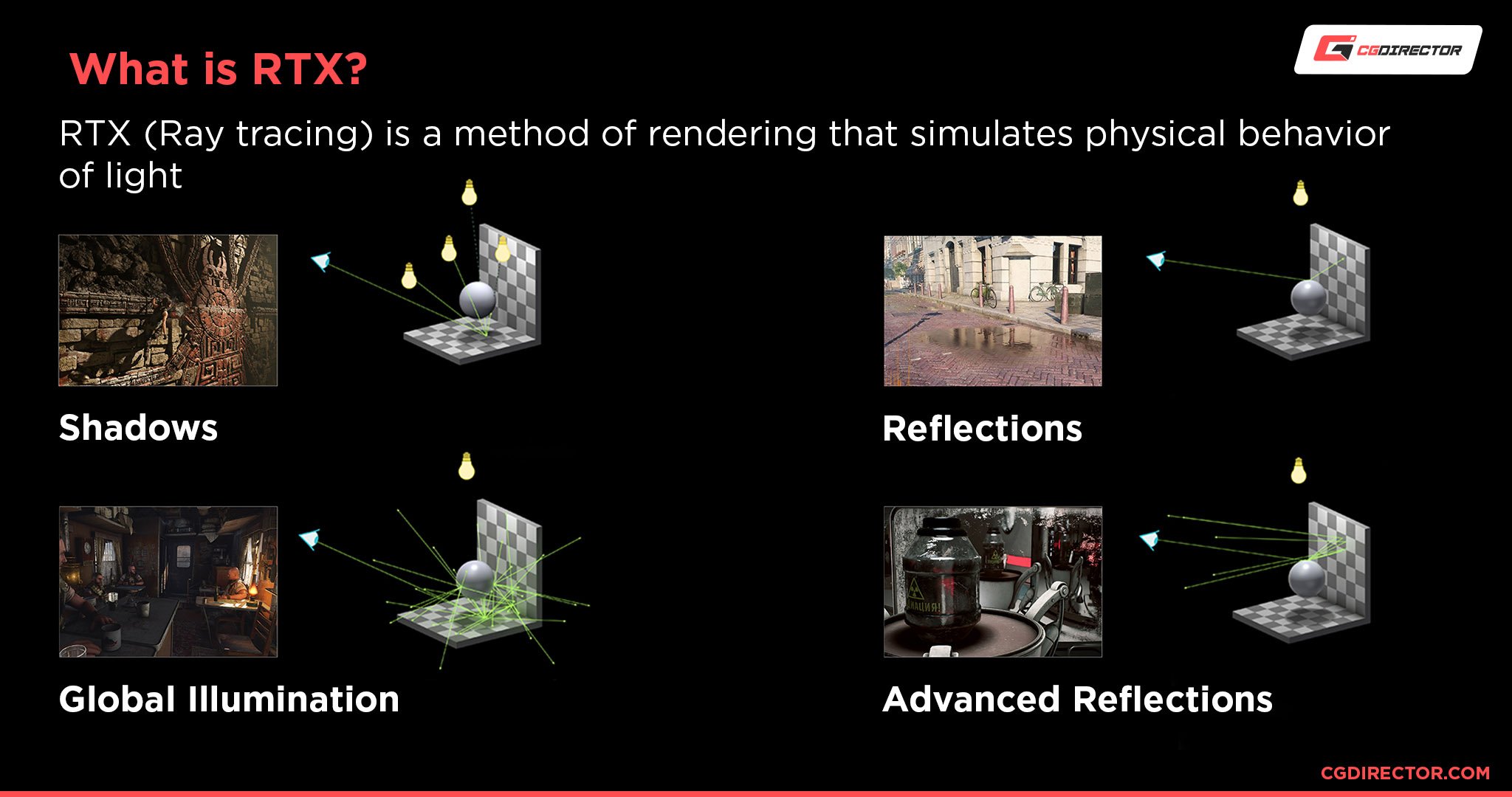
So if gaming isn’t your main use case, it may not be the best idea to pair an AMD GPU with an Intel CPU.
It’ll still work and all, but the Nvidia cards will generally be better for most heavy-duty productivity-oriented workloads.
Should I Wait To Pair an Intel GPU With an Intel CPU?
Probably not.
While I’m sure there will be some interesting features for that specific combination once it actually hits the market, those hypothetical improvements aren’t worth putting off a viable personal, gaming, or workstation PC build for today.
For example, remember the AMD Dual Graphics feature I mentioned earlier that briefly allowed AMD iGPUs and AMD dGPUs to work together?
It looks like Intel might be doing that too, but until it actually hits the market, I definitely wouldn’t consider it a system-selling feature.
Plus, most multi-GPU technologies just…don’t work very well outside of workloads where GPU load can be easily distributed across multiple cards, so for gaming, this probably won’t matter much at all.
FAQ
Are Intel CPUs Better Than AMD CPUs?
As mentioned above, Intel CPUs do have a somewhat consistent lead in gaming performance.
However, this performance crown tends to swap heads each generation, and oftentimes AMD CPUs boast an incredible lead in raw multi-core CPU power.
If used correctly, this CPU power can be leveraged fairly well in things like live streaming and video rendering/editing.
Ultimately, the answer to this question is really going to depend on who has the better offering for the money in a given price range and whose features you need more.
This is too general a question, but if your primary or only concern is gaming performance, Intel should have at least a slight lead- just maybe not for a proportionate amount of money.
Are Nvidia GPUs Better Than AMD GPUs?
As covered above, AMD GPUs and Nvidia GPUs excel at different things but are both fairly solid product lines in their own right.
If you aren’t concerned about Nvidia’s hardware-specific features, then it’s generally smart to just buy from whichever major manufacturer is giving you the better deal for your money in a given price range.
Oftentimes, especially for gamers, that’s AMD- but other times, Nvidia can actually squeeze out decent leads.
You’ll always want to double-check benchmarks between competing graphics cards before making a final purchasing decision, though.
What are The Best GPU Brands?
Another question that comes to mind when buying graphics cards is which brands or AIB partners you should be buying from.
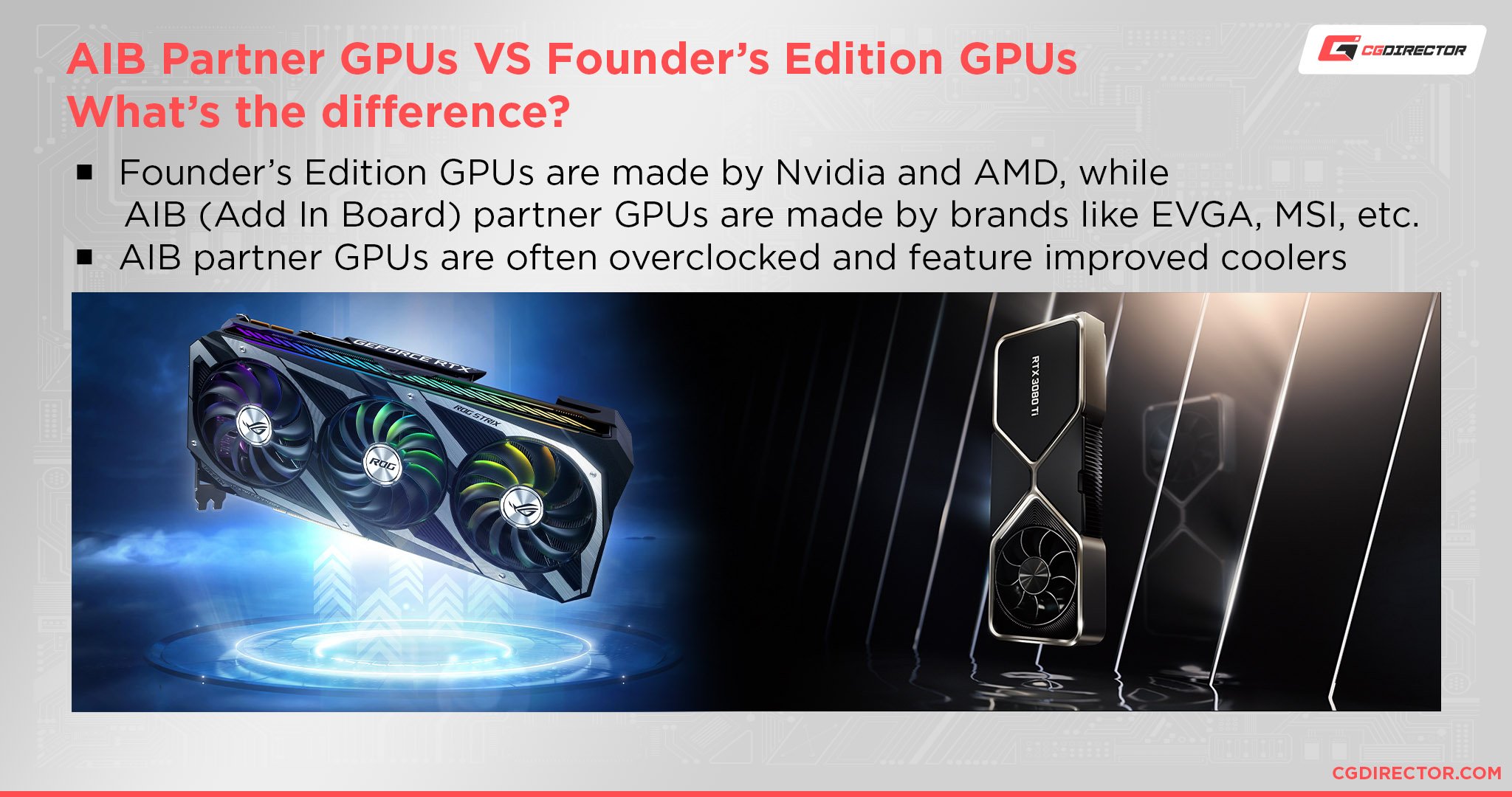
While AMD and Nvidia do manufacture the underlying GPU chips, their partners tend to have unique cooler designs to slap on top of them afterward and have varying levels of customer service and warranty to keep in mind.
Fortunately for you, I have a pretty detailed roundup of the Best GPU Brands for Both AMD and Nvidia already set up for you.
So if you want a solid idea of what brands to buy from based on pricing or features, head to that article and you should find the information you’re looking for.
Over to You
And that’s all, at least for now!
I hope this article answered any questions you might’ve had about your choice of CPU and GPU combination, and helped you reconsider if an AMD GPU with an Intel CPU actually might not have been the ideal choice for your needs.
Leave a comment below and let me know if you have any remaining hardware compatibility questions, or just tell me what your CPU/GPU combination is going to be. Alternatively, you can also head to our forums to interact with myself or other members of the CGDirector team and community.
All that being said, have a good one. Until next time, happy building- and don’t forget that AMD Dual Graphics existed once, and no one cared about it.
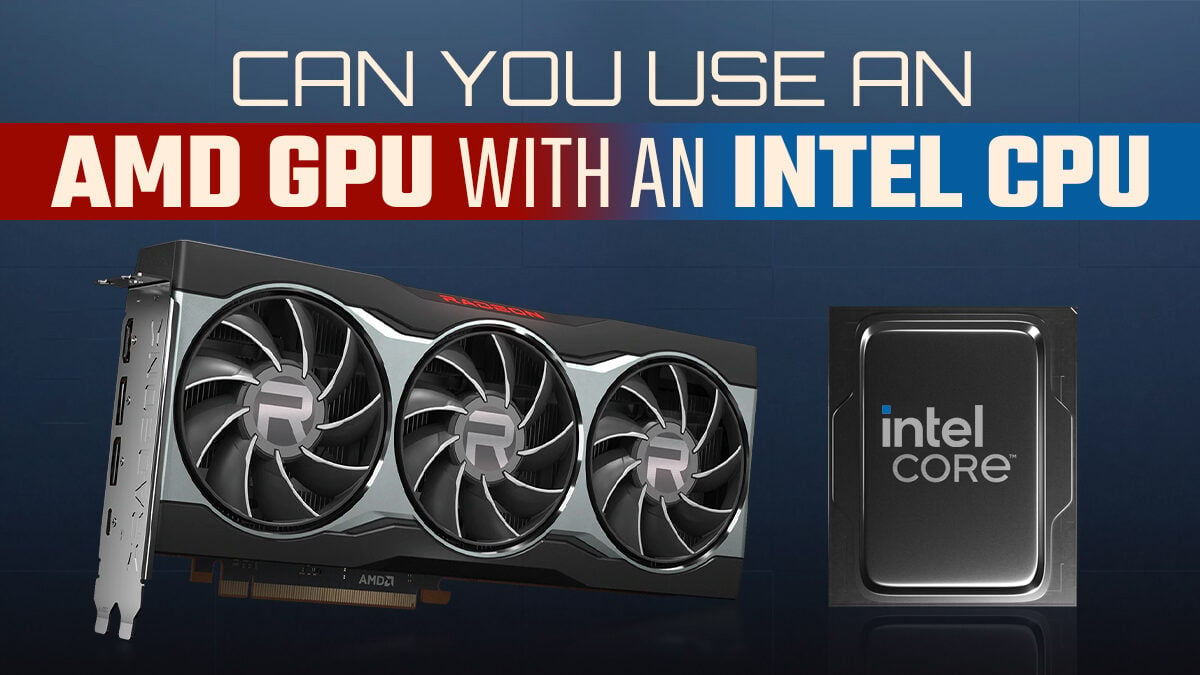
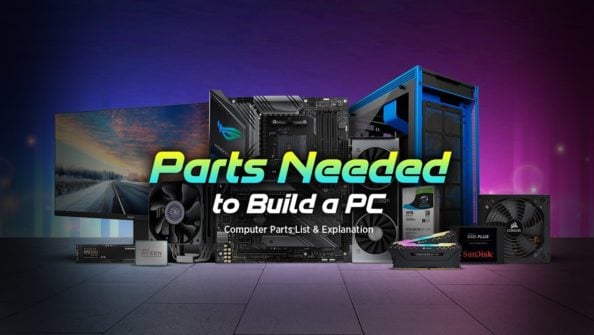

![Best CPU for Video Encoding [2024 Update] Best CPU for Video Encoding [2024 Update]](https://www.cgdirector.com/wp-content/uploads/media/2022/02/Best-CPU-For-Video-Encoding-Twitter-594x335.jpg)
![AMD Ryzen 5 vs Intel Core i5: Full Comparison [2024 Update] AMD Ryzen 5 vs Intel Core i5: Full Comparison [2024 Update]](https://www.cgdirector.com/wp-content/uploads/media/2023/10/Ryzen-5-vs-Core-i5-Full-Comparison-With-Pros-and-Cons-Twitter-594x335.jpg)

4 Comments
18 January, 2024
This was great, nicely written amd clear. Thanks!
4 January, 2024
Did I could still use intel igpu encoding feature?
4 January, 2024
Yes this should work, check this post: https://forums.anandtech.com/threads/use-intel-quick-sync-along-with-nvidia-gpu.2599371/
Cheers,
Alex
10 October, 2022
This has been very helpful by thoroughly listing the scenarios, thank you!